Medical Debt in America: A Research and Policy Forum
May 15, 2025 – Washington, DC
The Lown Institute brought together over 80 policymakers, hospitals, patient advocates, researchers, and other experts on medical debt for a one-day, in person conference, discussing the scope, drivers, and emerging challenges and potential solutions.
Watch the video recording
Click the links below to view the recording for each panel at the event.
Welcome remarks—Vikas Saini (Lown Institute)
Flipping the script: Starting with solutions— Vikas Saini (Lown Institute), Fred Cerise (Parkland Medical Center & ABIM Foundation), Patricia Kelmar (U.S. PIRG), David Shuster (Horizon Goodwill Industries)
What do we know about medical debt? A review of the evidence —Chris Goodman (University of South Carolina),
Fred Blavin (Urban Institute), Kelsey Chalmers (Lown Institute), Noam Levey, (KFF Health News), Matthew Rae (KFF)
Hospitals and medical debt: Opportunities for change and barriers to action— Noam Levey (KFF Health News), Fred Cerise (Parkland Medical Center & ABIM Foundation), Connor Coursey (Small Business Majority), Deepak Manmohan Goyal (Monument Health), Eli Rushbanks (Dollar For), Eva Stahl (Undue Medical Debt)
State-based solutions: How states are taking action on medical debt— Anthony Wright (Families USA), Elisabeth Benjamin (Community Service Society of New York), Nicole Dozier (North Carolina Justice Center), Maanasa Kona (Georgetown University), Luvia Quinones (Illinois Coalition for Immigrant and Refugee Rights)
Federal solutions: Legislative and administrative pathways for change—Vikas Saini (Lown Institute), Blair Elliott (Third Way), Michelle Sternthal (Community Catalyst)
Systemic solutions: Improving healthcare affordability and access in the long term—
Berneta Haynes (National Consumer Law Center), Ge Bai (Johns Hopkins Carey Business School), Sara Collins (Commonwealth Fund), Ed Weisbart (Physicians for a National Health Program), Wes Yin (UCLA Anderson School of Management)
Closing remarks— Vikas Saini (Lown Institute)
Participating organizations
- Americans for Financial Reform
- Colorado Consumer Health Initiative (CCHI)
- Community Catalyst
- Consumer Reports
- Community Service Society of New York (CSSNY)
- Dollar For
- Economic Action Maryland
- Georgetown University, Center on Health Insurance Reforms
- Horizon Goodwill Industries
- Illinois Coalition for Immigrant and Refugee Rights
- KFF Health News
- National Consumer Law Center (NCLC)
- North Carolina Justice Center
- People’s Action
- Persius
- Physicians for a National Health Program (PNHP)
- Small Business Majority
- Stanford Institute for Economic Policy Research
- Third Way
- Undue Medical Debt
- University of South Carolina
- Urban Institute
- U.S. PIRG
Panelists
Panelists

Ge Bai
Professor of Accounting and Professor of Health Policy & Management, Johns Hopkins University
Ge Bai, PhD, CPA, is a Professor of Accounting at the Johns Hopkins Carey Business School and Professor of Health Policy & Management at the Johns Hopkins Bloomberg School of Public Health.
Ge Bai, PhD, CPA, is a Professor of Accounting at the Johns Hopkins Carey Business School and Professor of Health Policy & Management at the Johns Hopkins Bloomberg School of Public Health. An expert on health care accounting, finance, and policy, she has testified before Congress, written for The Wall Street Journal and The Washington Post, and published her studies in leading academic journals. Her work has been widely featured in the media and cited in regulations and testimonies. She was a visiting scholar at the Health Analysis Division of the Congressional Budget Office from 2022 to 2023.
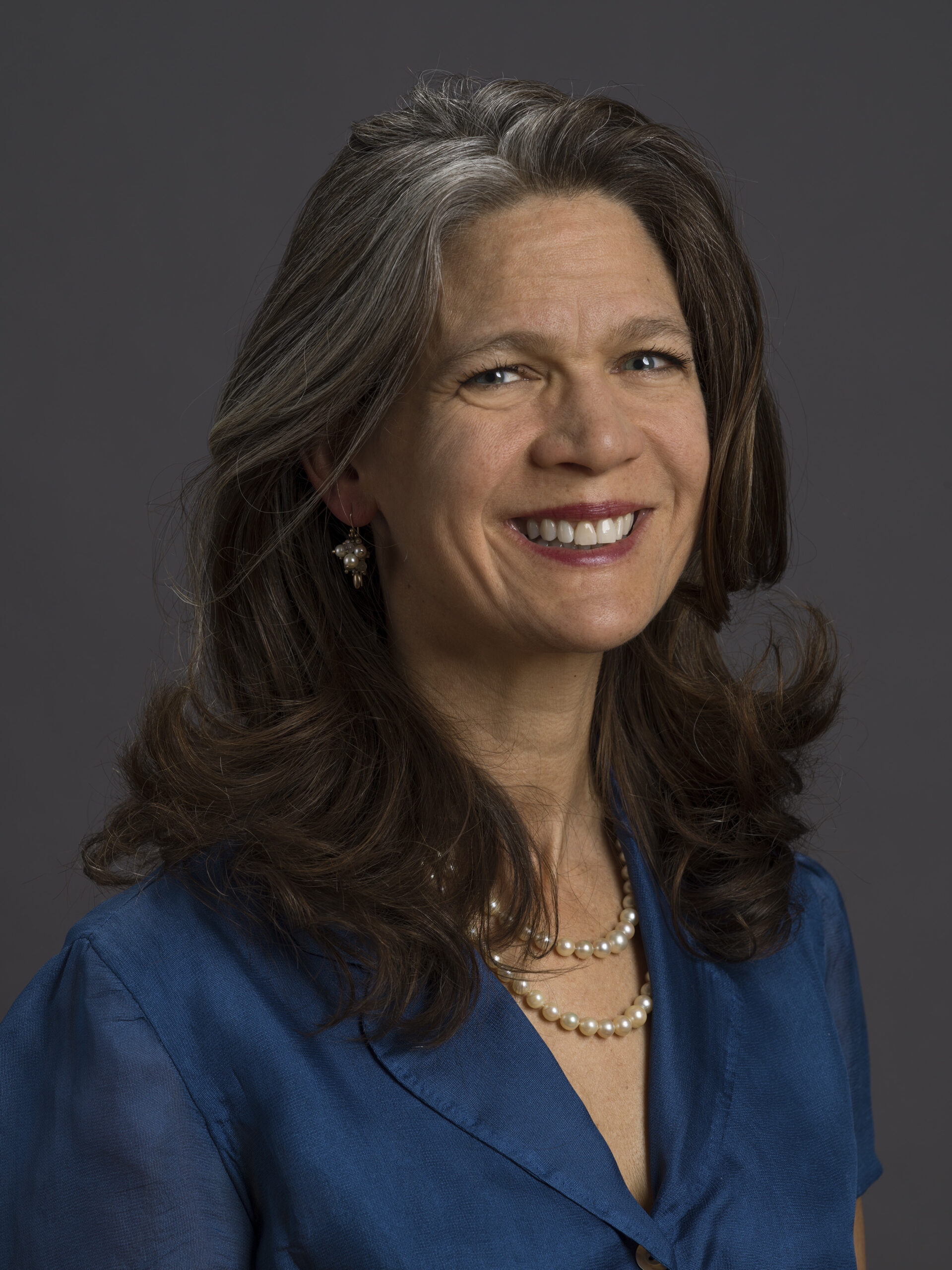
Elisabeth Benjamin
Vice President of Health Initiatives, Community Service Society of New York
Elisabeth Benjamin is the Vice President of Health Initiatives at the Community Service Society, where she supervises health policy, health advocacy, and consumer health assistance programs that serve over 130,000 New Yorkers annually.
Elisabeth Benjamin is the Vice President of Health Initiatives at the Community Service Society, where she supervises health policy, health advocacy, and consumer health assistance programs that serve over 130,000 New Yorkers annually. She is a leading consumer health advocate in New York State and co-founded of Health Care for All New York Campaign (HCFANY), a statewide coalition of over 170 organizations devoted to securing affordable, quality health care for all New Yorkers. She also leads the #EndMedicalDebt campaign, which has successfully advocated for the enactment of eight medical debt reform laws since 2020. She has published extensively and has been a frequent commentator about health policy issues such as: medical debt, insurance coverage expansions, and health equity.
Ms. Benjamin received a Master of Science degree in Health Policy and Management from Harvard School of Public Health in 1988 and a Juris Doctor degree from Columbia University School of Law in 1992. She clerked for the Honorable Robert Sweet, a federal District Court Judge for the Southern District of New York. In 2003-2004, she was a Visiting Scholar in Bioethics in a program jointly run by Montefiore Medical Center, the Albert Einstein College of Medicine and New York University.
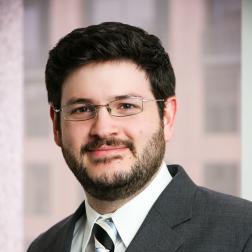
Fred Blavin
Senior Fellow, Urban Institute Health Policy Division
Fredric Blavin, PhD, is a Senior Fellow and leads the Low-Income Coverage, Access, and Affordability Practice Area in the Urban Institute’s Health Policy Division. He has extensive experience evaluating policies related to medical debt, health care coverage and affordability, and hospital finances.
Fredric Blavin, PhD, is a Senior Fellow and leads the Low-Income Coverage, Access, and Affordability Practice Area in the Urban Institute’s Health Policy Division. He has extensive experience evaluating policies related to medical debt, health care coverage and affordability, and hospital finances. He is an author of over 80 policy reports and 30 peer-reviewed articles in a variety of economic, policy, and medical journals including the Journal of Health Economics, Journal of Public Economics, Health Economics, JAMA JAMA Health Forum, Health Affairs, and Health Services Research. His research incorporates diverse topics including medical debt, hospital finances, and how public policy choices affect consumers, providers, and health insurance markets. Dr. Blavin’s research has been featured in numerous local and national media outlets, such as the New York Times, USA Today, Wall Street Journal, Washington Post, Marketplace, Forbes, CBS News, and Kaiser Health News.
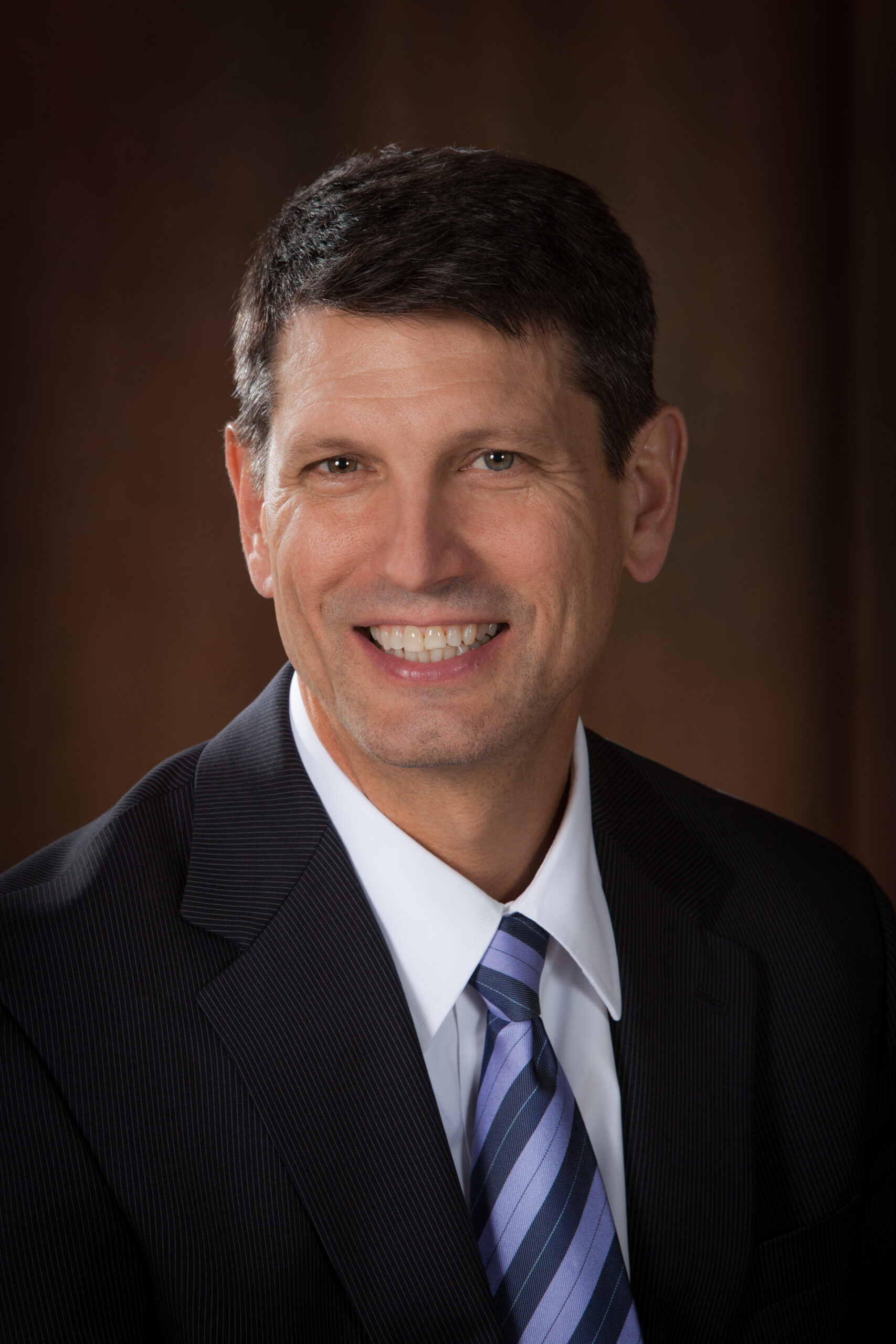
Fred Cerise
President and Chief Executive Officer, Parkland Health
Frederick P. Cerise, MD, MPH has served as President and Chief Executive Officer of Parkland Health since 2014. His previous roles include the Secretary of the Louisiana Department of Health and Hospitals and the Vice President for Health Affairs and Medical Education of the Louisiana State University System.
Frederick P. Cerise, MD, MPH has served as President and Chief Executive Officer of Parkland Health since 2014. His previous roles include the Secretary of the Louisiana Department of Health and Hospitals and the Vice President for Health Affairs and Medical Education of the Louisiana State University System.
Dr. Cerise holds a Bachelor of Science degree from University of Notre Dame and earned his Medical Degree at Louisiana State University, New Orleans. He completed a residency in Internal Medicine at the University of Alabama, Birmingham and earned a Master of Public Health degree from Harvard University School of Public Health.
He is the chairman of the American Board of Internal Medicine Foundation Board of Trustees and serves on the board of KFF. He previously served as a Commissioner on the Medicaid and CHIP Payment and Access Commission.

Kelsey Chalmers
Director of Research, Data Science at the Lown Institute
Dr. Chalmers is the Director of Research, Data Science at the Lown Institute. She has contributed to the development of the Lown Institute Hospital Index, the first ranking to evaluate hospitals on their social responsibility – assessing metrics of health equity and value of care alongside traditional patient outcomes.
Dr. Chalmers is the Director of Research, Data Science at the Lown Institute. She has contributed to the development of the Lown Institute Hospital Index, the first ranking to evaluate hospitals on their social responsibility – assessing metrics of health equity and value of care alongside traditional patient outcomes. Related to medical debt, she has led the development of a national data set on hospital financial assistance and debt collection policies, and is a current Scholar in Residence for an AcademyHealth and ABIM Foundation’s Advancing Trust: A Focus on Medical Debt project. She has contributed to discussions on the role of artificial intelligence in health care, co-authoring a viewpoint in JAMA Internal Medicine exploring how hospitals’ use of AI tools can influence medical debt. Prior to joining the Lown Institute in 2020, Dr. Chalmers worked as a health policy researcher at the University of Sydney, Australia, where she also received her Ph.D. in public health with a focus on measuring overuse of medical care. She graduated from the University of Queensland with a degree in Mathematics and Statistics.
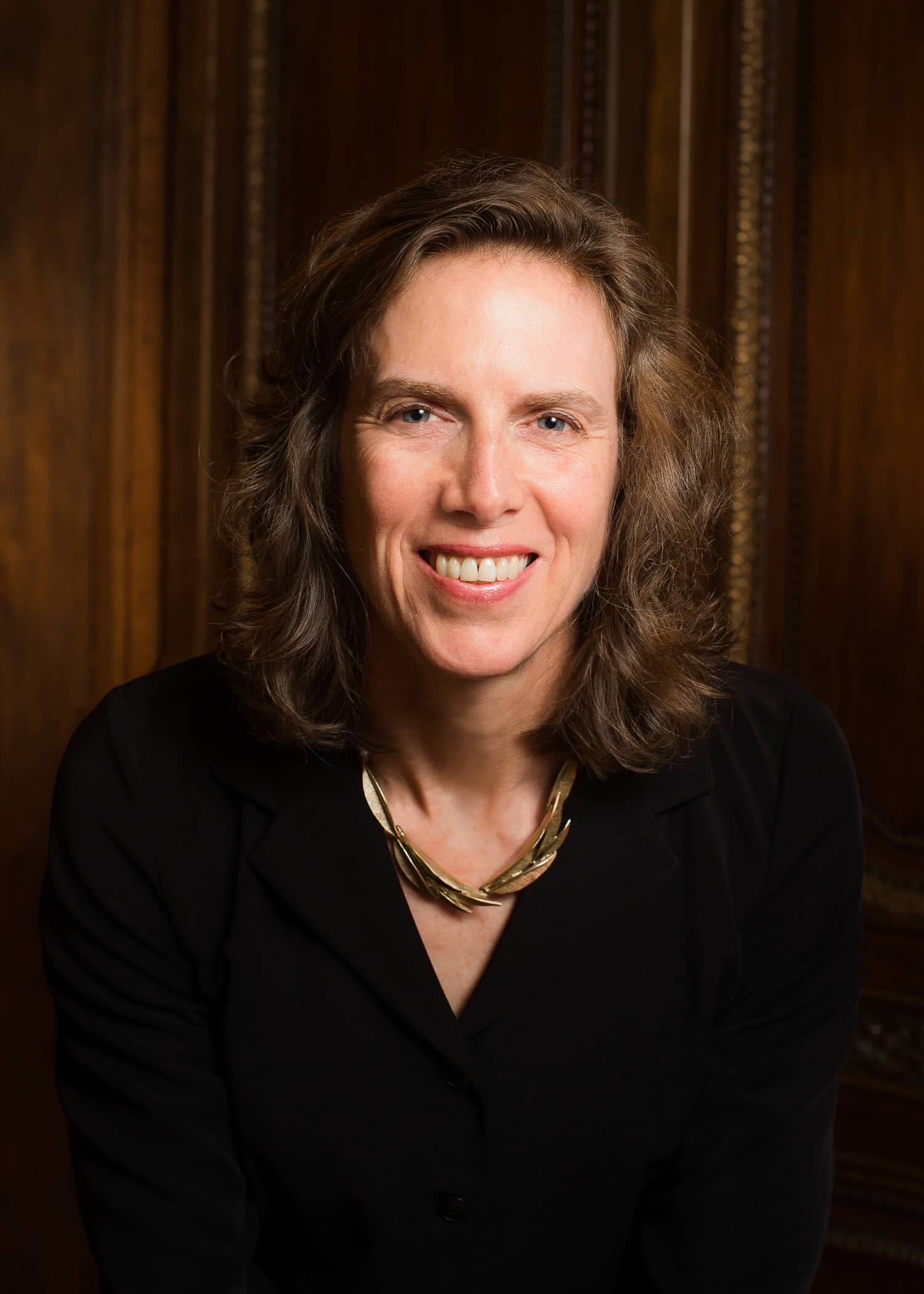
Sara Collins
Senior Scholar, Vice President, Health Care Coverage and Access & Tracking Health System Performance, The Commonwealth Fund
Sara R. Collins, Ph.D., is senior scholar and vice president for health care coverage and access and tracking health system performance at The Commonwealth Fund.
Sara R. Collins, Ph.D., is senior scholar and vice president for health care coverage and access and tracking health system performance at The Commonwealth Fund. An economist, Dr. Collins directs the Fund’s program on insurance coverage and access and the research initiative on tracking health system performance which produces the Fund’s annual scorecard on state health system performance. Since joining the Fund in 2002, Dr. Collins has led several multi-year national surveys on health insurance and authored numerous reports, issue briefs, blog posts, and journal articles on health insurance coverage, health reform, the Affordable Care Act, and state health system performance. She has provided invited testimony on 17 occasions before several Congressional committees and subcommittees. Prior to joining the Fund, Dr. Collins was associate director/senior research associate at the New York Academy of Medicine, Division of Health and Science Policy. Earlier in her career, she was an associate editor at U.S. News & World Report, a senior economist at Health Economics Research, and a senior health policy advisor in the New York City Office of the Public Advocate. She holds an A.B. in economics from Washington University and a Ph.D. in economics from George Washington University.

Connor Coursey
Senior Government Affairs Associate, Small Business Majority
Connor supports Small Business Majority’s government affairs work through the organization’s relationships and advocacy efforts on Capitol Hill, federal agencies, and the White House.
Connor supports Small Business Majority’s government affairs work through the organization’s relationships and advocacy efforts on Capitol Hill, federal agencies, and the White House. Prior to joining Small Business Majority, Connor was an Assistant Policy Officer at the Local Initiatives Support Corporation (LISC), where he supported policy advocacy efforts on Capitol Hill to expand and strengthen federal affordable housing and community development policies. Before that, Connor interned at Invariant Government Relations and with the Offices of Representatives Steny Hoyer and Jamie Raskin.

Nicole Dozier
Director of Health Advocacy Project, North Carolina Justice Center
Nicole Dozier, Director of the Health Advocacy Project is a 28-year veteran of the North Carolina Justice Center, a statewide non-profit organization committed to attacking poverty at its roots through various issue areas deploying diverse strategies.
Nicole Dozier, Director of the Health Advocacy Project is a 28-year veteran of the North Carolina Justice Center, a statewide non-profit organization committed to attacking poverty at its roots through various issue areas deploying diverse strategies. She works alongside team members she describes as the most committed, strategic, effective advocates she knows. Beginning well over a decade ago, this Project in partnership with other incredible state and national partners and leaders, with investment from committed funders, with the people most directly impacted as the centerpiece, North Carolina expanded Medicaid, the most impactful, legislative policy victory in a decade. Because we don’t have universal coverage, health inequities remain and people experience financial ruin because of medical debt, the Project still has more work to do.
Nicole also understands the impact of local policymaking that is sustained beyond your service, having served as Mayor Pro Tempore of a small but growing town, where she helped create and expand initiatives around community engagement; transparency; anti-poverty; diversity, inclusion and belonging; championed the Senior Center where she was honored with a lounge bearing her name; and led efforts resulting in paid parental, caregiver and bereavement leaves; expanding the family definition under FMLA, and instituted living wage and COVID-19 hazard pay.
Nicole’s recent policy awards include: Order of the Long Leaf Pine (NC Governor’s highest recognition for service), National Coalition of 100 Black Women Policy Award, NC AIDS Action Network Advocate of the Year and Apex Chamber of Commerce Citizen of the Year.
Nicole received a BA degree in Industrial Relations with Sociology concentration from UNC – Chapel Hill in 1988 where she also pledged Delta Sigma Theta Sorority, Inc. in 1987 and is featured in the university’s Women with Moxie and Alumni Oral History Projects.
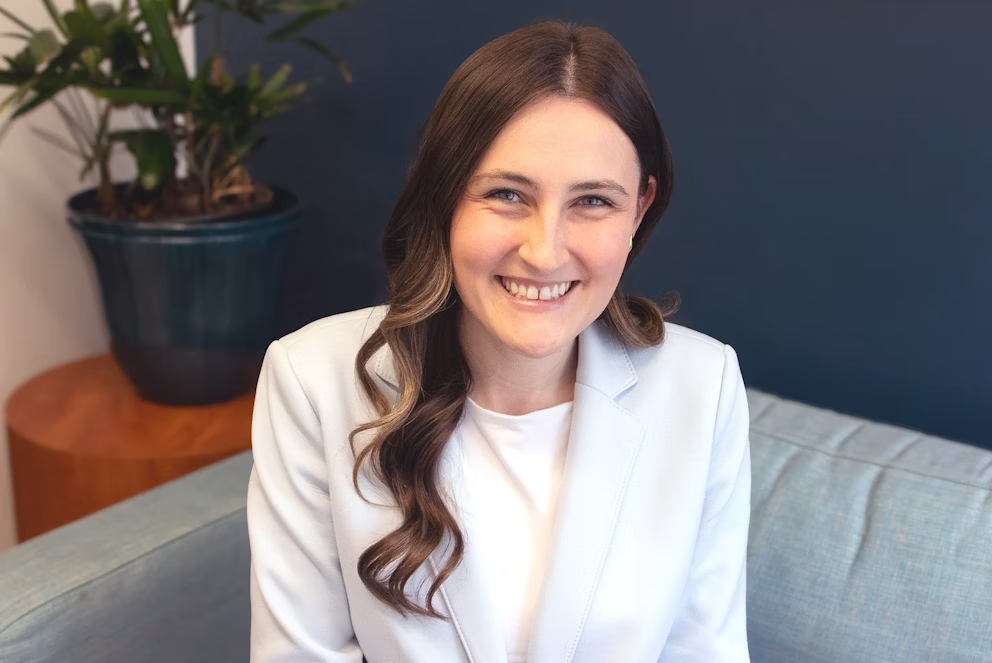
Blair Elliot
Health Policy Advisor, Third Way
Blair is the Health Policy Advisor for Third Way’s Economic program. In her role, she develops and advances ideas that will lower health care costs and make accessing quality care easier for Americans.
Blair is the Health Policy Advisor for Third Way’s Economic program. In her role, she develops and advances ideas that will lower health care costs and make accessing quality care easier for Americans. She is particularly interested in efforts to maintain historically low uninsured rates and prevent the accumulation of medical debt.
Before joining the Third Way team, Blair served as a health policy advisor at the White House Domestic Policy Council in the Biden-Harris Administration. Blair covered a variety of work on health care coverage and costs; led her team’s climate and environmental health portfolios; and drove work to reduce medical debt burden, protect workers from workplace health hazards, and strengthen Affordable Care Act coverage.
Prior to her time at the White House, Blair also spent time as a fellow with the National Oceanic and Atmospheric Administration’s legislative affairs team. She is originally from Marietta, GA and earned a degree in Environmental and Marine Policy from the University of South Carolina.

Chris Goodman
Clinical Associate Professor of internal medicine at the University of South Carolina School of Medicine and Prisma Health.
Christopher W. Goodman, MD, received his medical degree from the University of South Carolina School of Medicine and completed his residency in internal medicine at Emory University.
Christopher W. Goodman, MD, received his medical degree from the University of South Carolina School of Medicine and completed his residency in internal medicine at Emory University. He returned to South Carolina to join the faculty with the University of South Carolina School of Medicine where is a clinical associate professor of internal medicine working in both inpatient and outpatient settings.
Dr. Goodman’s professional interests are focused on social medicine, quality improvement, and interprofessional care. He works to establish partnerships to advance health for all people, whether through organizing on housing issues or advancing access to life-saving medication for opioid use disorder. After witnessing the significance of charity care at safety net hospitals in his training and practice, Dr. Goodman began researching financial assistance policies at nonprofit hospitals and has published several articles describing their content and changes over time.
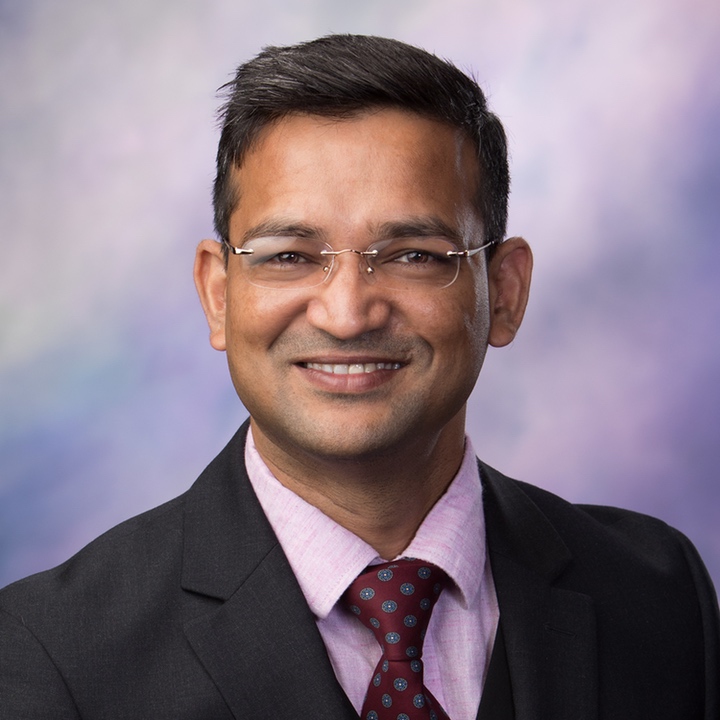
Deepak Manmohan Goyal
Physician Executive, Monument Health
Dr. Deepak Manmohan Goyal is an accomplished Physician Executive at Monument Health, bringing over 24 years of progressive medical and executive leadership experience to the forefront of healthcare innovation in Rapid City, SD.
Dr. Deepak Manmohan Goyal is an accomplished Physician Executive at Monument Health, bringing over 24 years of progressive medical and executive leadership experience to the forefront of healthcare innovation in Rapid City, SD. Holding both an MD and an MBA, Dr. Goyal offers a distinctive and powerful perspective on navigating the complexities of modern healthcare delivery. He has spearheaded critical system-wide initiatives driving financial optimization, enhanced quality of care, operational efficiency, patient safety, patient experience, and innovative programs like presumptive charity care. His deep understanding of the symbiotic relationship between clinical excellence and business strategy positions him as a uniquely impactful leader in the healthcare landscape. Dr. Goyal is also a nationally recognized speaker, sharing his insights at prestigious conferences including ACHE, ACMA, AHRMM, IDN, GHX, and HFMA.

Berneta Haynes
Senior Attorney, National Consumer Law Center
Berneta L. Haynes is a senior attorney who focuses on consumer energy policy and medical debt.
Berneta L. Haynes is a senior attorney who focuses on consumer energy policy and medical debt. At NCLC, she recently authored Air-Source Heat Pumps: Protecting the Financial Well-being of Low-Income Families While Addressing Climate Change, Tariff-based On-Bill Financing: Assessing the Risks for Low-Income Consumers, and Community Solar: Expanding Access and Safeguarding Low-Income Families. She is also a contributing author to NCLC’s Access to Utility Service treatise. Before joining NCLC, she served as a director at Georgia Watch, a state-based consumer advocacy organization in Atlanta, where she worked to make energy programs, quality healthcare, financial protection, and civil justice more equitable and accessible for all. At Georgia Watch, she led coalitions, facilitated forums, authored consumer-facing educational materials and policy guides on energy equity (including Keeping the Lights On and EMCs and Energy Equity: Harnessing Your Power), financial protection, and healthcare billing. Previously, she practiced law at Environmental Law and Policy Center in Chicago and Southern Environmental Law Center, where she authored Solar for All and other policy papers. She earned her Bachelor’s degree in English, Writing, and Psychology from Drury University, her Master’s degree in English from University of Iowa, and her law degree from University of Iowa College of Law.
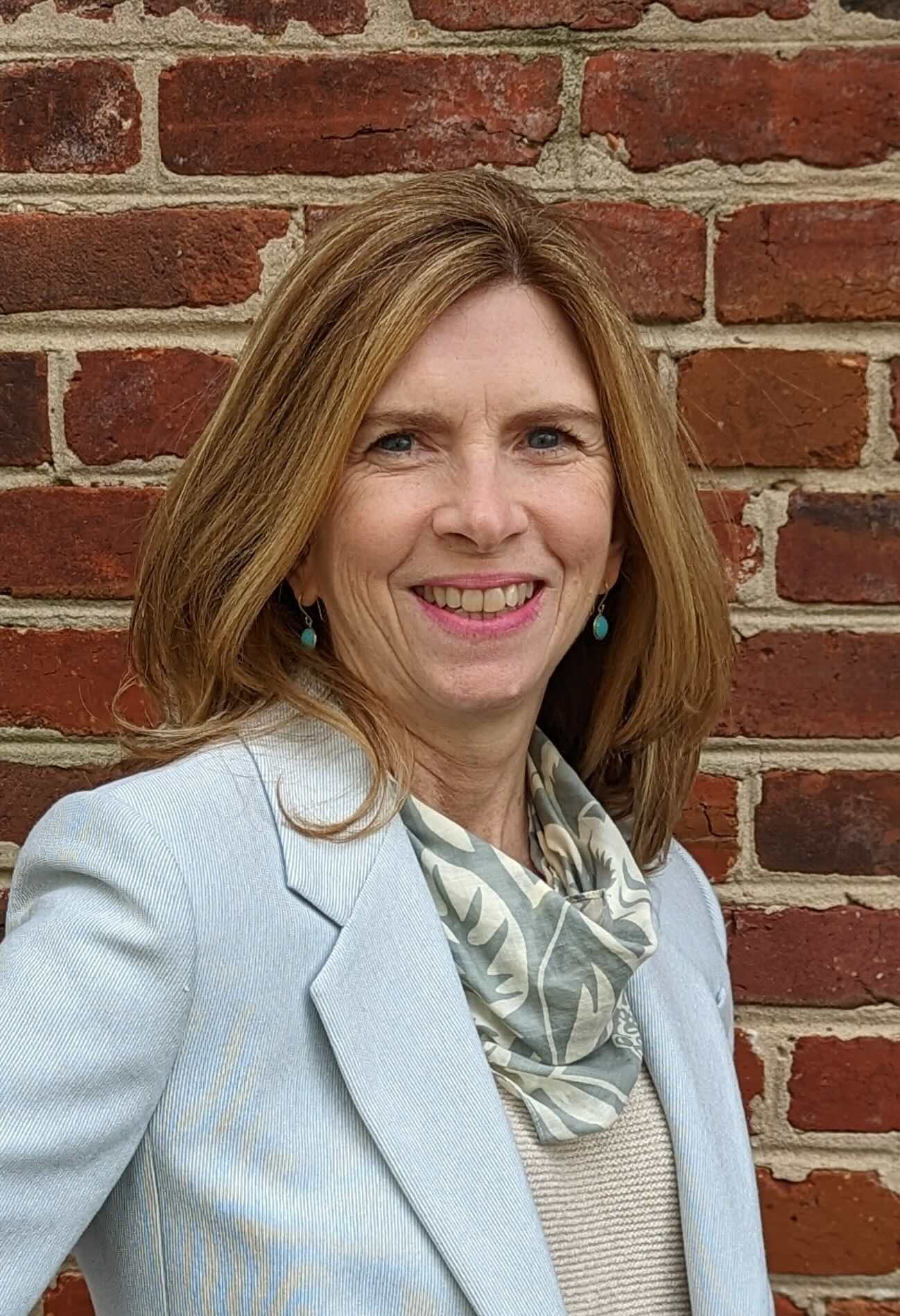
Patricia Kelmar
Senior Director of Health Care Campaigns, U.S. PIRG
Patricia Kelmar is the Senior Director, Health Care Campaigns for U.S. PIRG. PIRG is a federation of state-based, nonpartisan, citizen-funded Public Interest Research Groups.
Patricia Kelmar is the Senior Director, Health Care Campaigns for U.S. PIRG. PIRG is a federation of state-based, nonpartisan, citizen-funded Public Interest Research Groups. Patricia advocates for policy changes to lower health care prices, improve quality of care and strengthen patient protections. She frequently represents a consumer perspective in national and state forums. Patricia appears in media across the U.S., speaking on behalf of patients who struggle with medical bills and insurance coverage. She honed her consumer and health policy skills with AARP and the New Jersey Health Care Quality Institute. Before joining PIRG, she worked with state and national nonprofits, offering policy analysis, strategic planning, media relations, and fundraising. She has a B.A. from Boston College and a J.D. from George Washington University Law School. She has served on the Ground Ambulance and Patient Billing Advisory Committee for Centers for Medicare and Medicaid Services and partnered with the National Quality Forum to better engage patients in quality measurement. She currently lives in the Washington DC metro area but has lived in seven states and two other countries.

Maanasa Kona
Associate Research Professor at the Center on Health Insurance Reforms, Georgetown University
Maanasa Kona, JD, LLM, is an Associate Research Professor and faculty member at the Center on Health Insurance Reforms at Georgetown University’s McCourt School of Public Policy.
Maanasa Kona, JD, LLM, is an Associate Research Professor and faculty member at the Center on Health Insurance Reforms at Georgetown University’s McCourt School of Public Policy. Her research focuses on improving the affordability of and access to health care. She leads the center’s work on medical debt policy, and her recent projects have also included improving access to primary care and mental health care for underserved populations and pushing back against provider consolidation.
At CHIR, Ms. Kona has played a key role in projects analyzing state regulation of balance billing, evaluating cost containment strategies implemented by state employee health plans, studying the enforcement of the mental health parity law at the state level, and assessing the landscape of emerging alternative coverage arrangements in the private insurance market.
Prior to joining Georgetown, she was a Research Associate at the Department of Health Policy and Management at The George Washington University, where she researched and wrote on a variety of health policy issues, including certification of qualified health plans in the individual market, Medicaid coverage of asthma self-management education, the tax treatment of employer-sponsored insurance, and coverage of preventive services by marketplace plans.
She received her Bachelors in Industrial Engineering from Georgia Institute of Technology, her J.D. from American University Washington College of Law, and her LL.M. from the George Washington University.
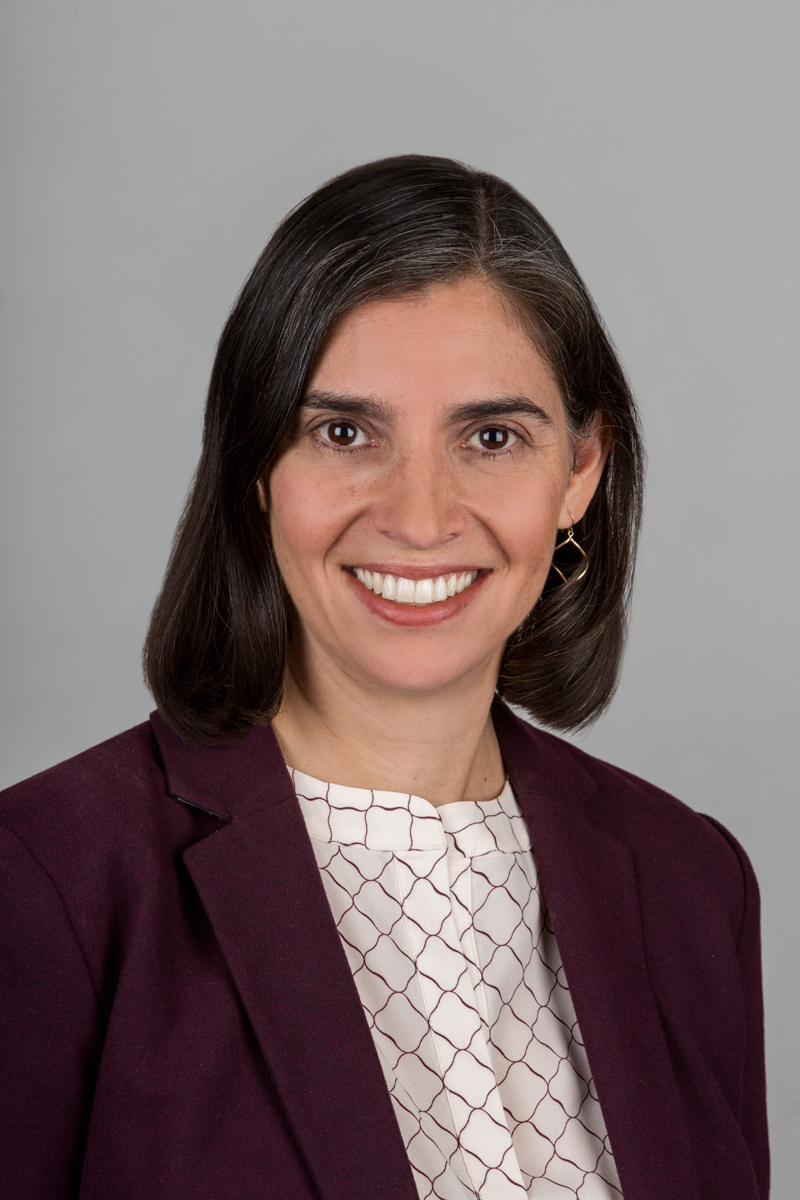
Julia Lerche
Chief Strategy Officer and Chief Actuary for North Carolina Medicaid
Julia Lerche, FSA, MAAA, MSPH, is a health policy professional and actuary dedicated to improving the health of vulnerable populations.
Julia Lerche, FSA, MAAA, MSPH, is a health policy professional and actuary dedicated to improving the health of vulnerable populations. Julia currently serves as Chief Strategy Officer and Chief Actuary for North Carolina Medicaid, where she leads program design, policy development and analysis. Julia was instrumental in designing key components of North Carolina Medicaid’s innovative approach to managed care, addressing medical and non-medical drivers of health, and in North Carolina’s recent Medicaid expansion under the Affordable Care Act (ACA) and medical debt relief initiative. Prior to joining NC Medicaid, Julia spent five years in public and private sector organizations advising state policymakers on implementation of the ACA. Julia serves on the Board of the American Academy of Actuaries, which provides objective expertise and actuarial advice to policymakers and supports the actuarial profession. Julia holds a Master’s degree in Public Health from UNC-Chapel Hill, and also has eight years of experience providing health care and other benefits consulting to large employers.
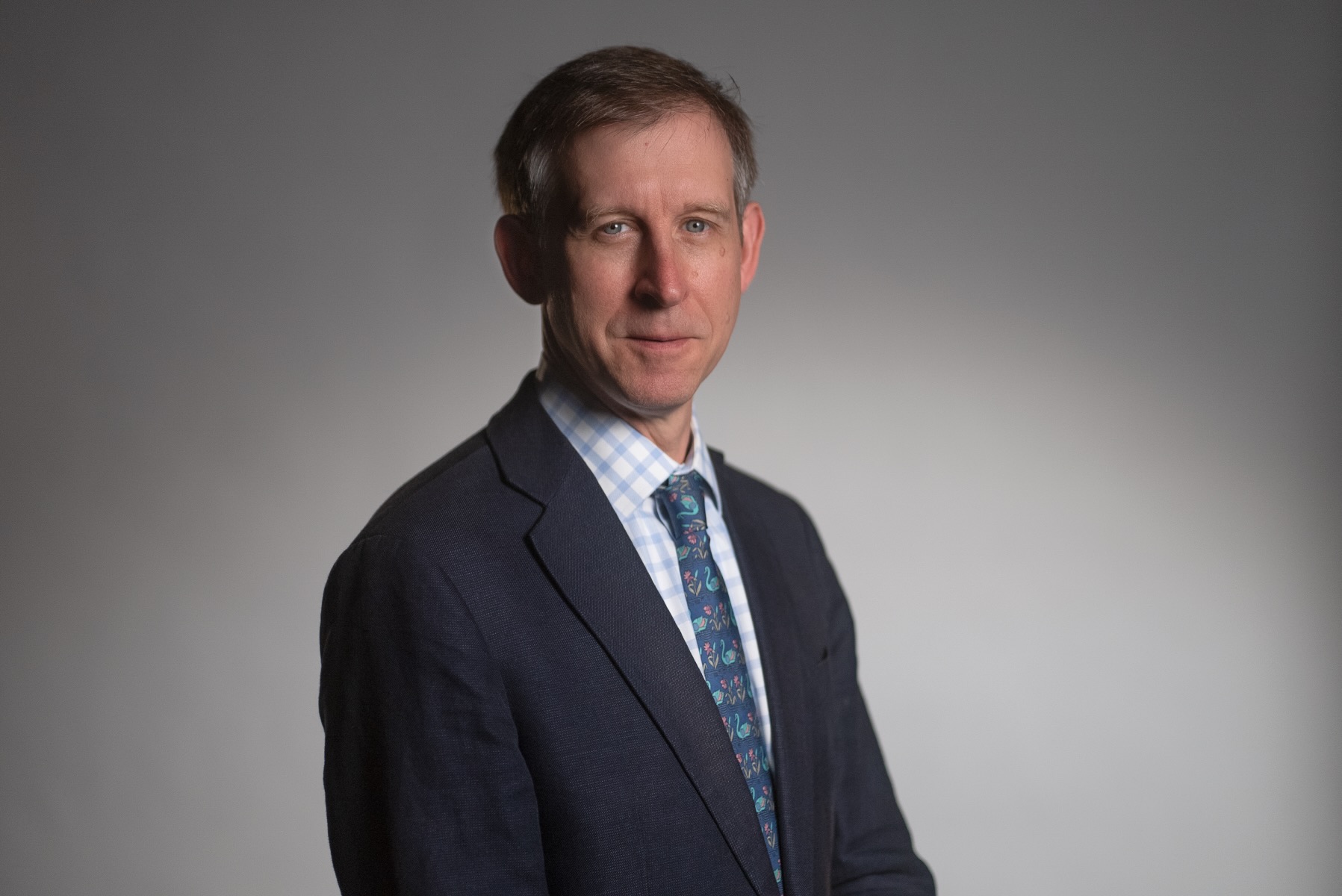
Noam Levey
Senior Correspondent, KFF Health News
Noam N. Levey is a Washington, D.C.,-based senior correspondent for KFF Health News, where he is currently producing “Diagnosis: Debt,” a multi-year project on medical debt in the U.S. in collaboration with NPR and CBS News.
Noam N. Levey is a Washington, D.C.,-based senior correspondent for KFF Health News, where he is currently producing “Diagnosis: Debt,” a multi-year project on medical debt in the U.S. in collaboration with NPR and CBS News. Noam joined KFF Health News in 2021 after 17 years at the Los Angeles Times, the last 12 as the paper’s national healthcare reporter based in Washington. He has reported on healthcare issues from more than three dozen states and four continents and won numerous honors, including a Loeb award and two NIHCM awards, one in 2020 for his series “Inside America’s High-Deductible Revolution” and one in 2023 for “Diagnosis: Debt.” Noam has also been published in Health Affairs, JAMA and Milbank Quarterly. He started his career at newspapers in Duluth, Minn., Montgomery, Ala., and the United Arab Emirates. Prior to the LA Times, Noam was an investigative reporter for the San Jose Mercury News. Noam has a degree in History and Near Eastern Studies from Princeton University.
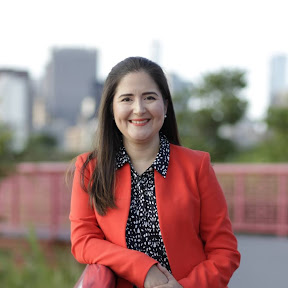
Luvia Quiñones
Senior Director of Health Policy, Illinois Coalition for Immigrant and Refugee Rights
Luvia Quiñones serves as the Senior Director of Health Policy at the Illinois Coalition for Immigrant and Refugee Rights (ICIRR).
Luvia Quiñones serves as the Senior Director of Health Policy at the Illinois Coalition for Immigrant and Refugee Rights (ICIRR). In this role, Luvia oversees the organization’s health policy portolio and collaborates with ICIRR’s members to develop ICIRR’s health policy priorities with a special focus on access to health care for the uninsured. She’s a national expert on immigrant health and medical debt frequently presenting at conferences and media outlets. Luvia has a Master in Public Policy (MPP) from the University of Chicago and a BA in International Studies from DePaul University. She is the daughter of Mexican Immigrants from Durango, Mexico. Currently, she serves as a board member of the Illinois Association of Free and Charitable Clinics (IAFCC) and Thresholds.
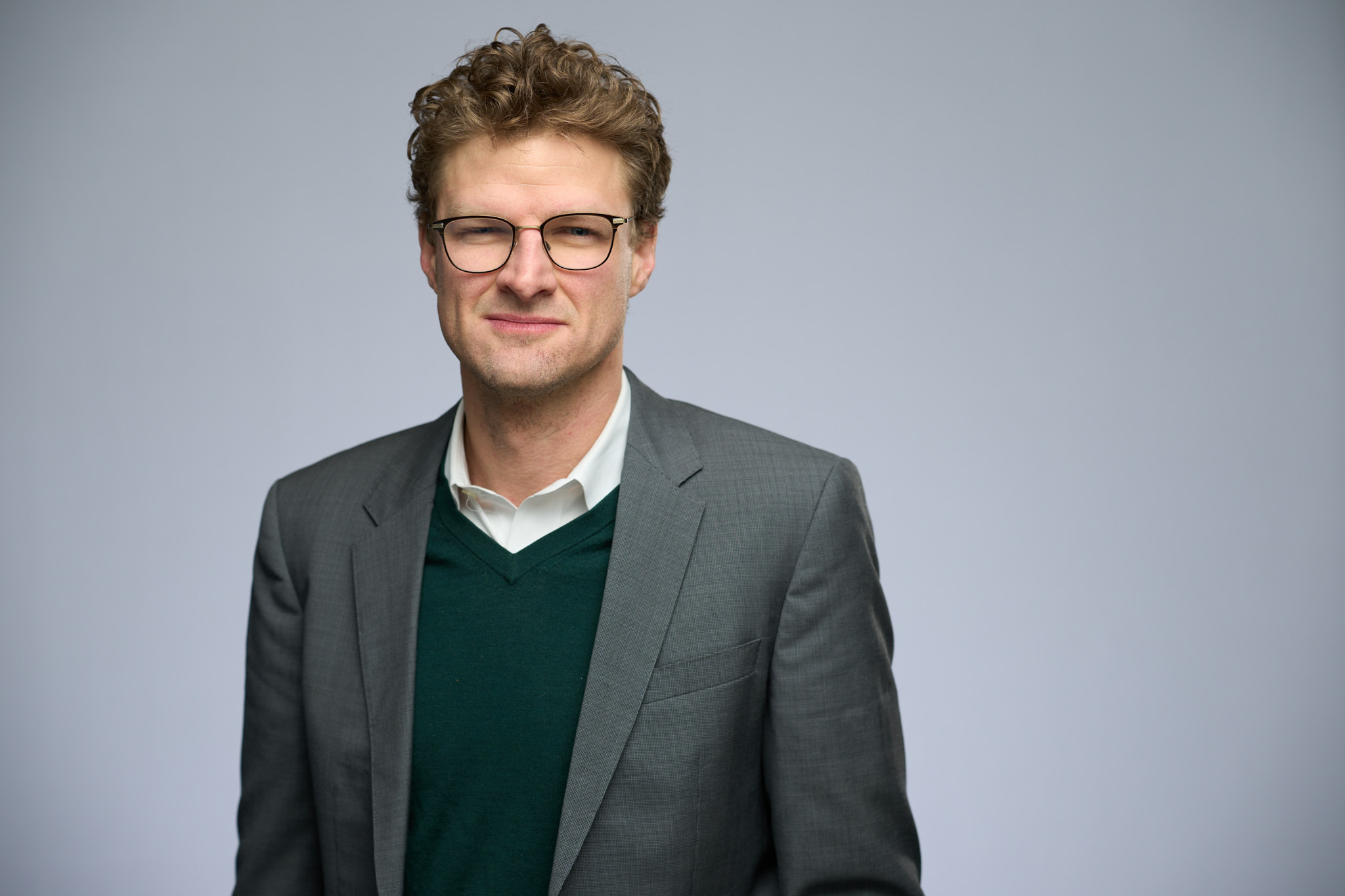
Matthew Rae
Associate Director of the Program on the Health Care Marketplace, KFF
Matthew Rae serves as the Associate Director of the Program on the Health Care Marketplace at KFF, where he has been managing the Employer Health Benefits Survey since 2011.
Matthew Rae serves as the Associate Director of the Program on the Health Care Marketplace at KFF, where he has been managing the Employer Health Benefits Survey since 2011. His expertise lies in analyzing the private insurance market and evaluating policy proposals aimed at its reform. Rae has a particular interest in analytic methods and data analysis, especially in deriving insights from survey and claims data. He has co-authored numerous reports and issue briefs on employer-sponsored insurance, health care costs, and coverage trends, contributing to the broader understanding of how private insurance markets function and evolve.

Eli Rushbanks
General Counsel and Director of Policy & Advocacy, DollarFor
Eli is an attorney who works at the intersection of medical debt and consumer protection. He currently is the General Counsel and Director of Policy & Advocacy at Dollar For, a patient advocacy non-profit that helps patients apply for hospital financial assistance.
Eli is an attorney who works at the intersection of medical debt and consumer protection. He currently is the General Counsel and Director of Policy & Advocacy at Dollar For, a patient
advocacy non-profit that helps patients apply for hospital financial assistance. In that capacity
he works with patients, advocacy groups, lawyers, state and federal regulators, and hospital
leaders to improve patient access to and experience with financial assistance. He helped build
Dollar For from the ground up which, so far, has helped relieve over $80 million in debt for
nearly 30,000 patients.
His work has been featured in publications such as the New York Times, Wall Street Journal,
and NPR. His reports on charity care policy have been cited by the CFPB and have been the
basis for class action lawsuits for charity care violations.
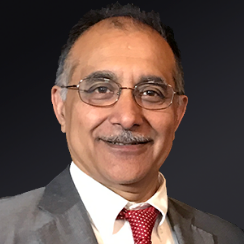
Vikas Saini
President, Lown Institute
Vikas Saini, MD is president of the Lown Institute. He is a clinical cardiologist trained by Dr. Bernard Lown who has taught and done research at both Harvard Medical School and Harvard School of Public Health.
Vikas Saini, MD is president of the Lown Institute. He is a clinical cardiologist trained by Dr. Bernard Lown who has taught and done research at both Harvard Medical School and Harvard School of Public Health. Dr. Saini leads the Institute’s signature project, the Lown Institute Hospitals Index, the first ranking to measure hospital social responsibility. The Index, first launched in July 2020, evaluates hospitals on equity, value, and outcomes, and includes never-before-used metrics such as avoiding overuse, pay equity, and racial inclusivity.
In his role at the Lown Institute since 2012, Dr. Saini led the development of the Right Care series of papers published by The Lancet in 2017; convened six national conferences featuring world-renowned leaders in health care; and guided other Lown Institute projects such as the “Shkreli Awards.” Dr. Saini also served as co-chair of the Right Care Alliance, a grassroots network of clinicians, patient activists, and community leaders that organized to put patients, not profits, at the heart of health care. Their public advocacy on insulin pricing, the FDA’s approval of the ineffective Alzheimer’s drug Aduhelm, and medical debt has had substantial impact on the national conversation about fairness in health care.
Prior to the Lown Institute, Dr. Saini practiced cardiology for over 15 years on Cape Cod. There he founded a primary care physician network participating in global payment contracts and was part of the leadership of the largest independent IPA in New England. He also was scientific co-founder Aspect Medical Systems, the pioneer in noninvasive consciousness monitoring in the operating room with the BIS device. Aspect went public in 2000 and was acquired by Covidien in 2009.
Dr. Saini is an expert on the optimal medical management of cardiologic conditions, medical overuse, hospital performance and evaluation, and health equity. He has spoken and presented research at professional meetings around the world, and has been quoted in numerous print media, radio, and television.
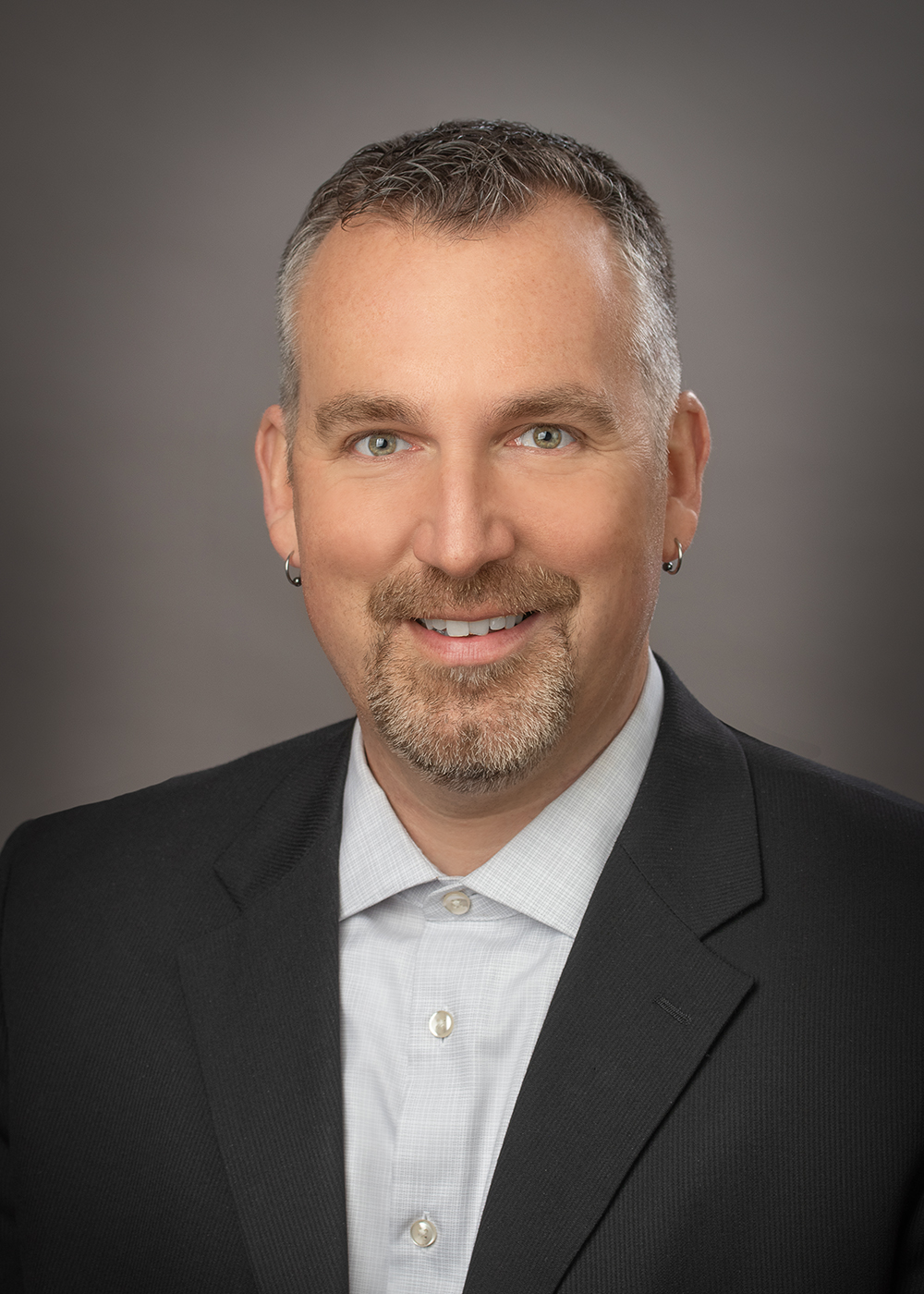
David Shuster
President and Chief Executive Officer, Horizon Goodwill Industries
David Shuster currently serves as the President and Chief Executive Officer of Horizon Goodwill Industries in Hagerstown MD. He has been with Horizon Goodwill (HGI) since November 2013, serving previously as an Associate Director, Director, and Interim CEO.
David Shuster currently serves as the President and Chief Executive Officer of Horizon Goodwill Industries in Hagerstown MD. He has been with Horizon Goodwill (HGI) since November 2013, serving previously as an Associate Director, Director, and Interim CEO. Goodwill’s mission is to remove barriers to social mobility, thereby creating empowered people and sustainable communities. As a unique non-profit social enterprise, HGI strives to meet people where they are and help them get where they want to be by utilizing a holistic and person-centered model that builds hope for a better future in individuals and their communities.
David came to Goodwill from Virginia Tech, where he served for 15 years in student affairs leadership and currently serves on the Student Affairs Alumni Advisory Board. He is also a member of the board of Family Healthcare of Hagerstown, is an active leader in Scouts BSA, a member of Hagerstown Rotary-Sunrise and the Greater Hagerstown Committee, and previously served as a Flotilla Commander with the United States Coast Guard Auxiliary while living in Virginia.
He holds a Bachelor of Arts degree in Theatre Arts and a Master of Science degree in Health and Physical Education from Virginia Tech. He earned his doctoral degree in educational leadership from Frostburg State University in 2018, where his dissertation research specifically focused on the practical application of the positive psychology concept of hope.

Eva Stahl
VP of Public Policy & Program Management, Undue Medical Debt
Eva Marie Stahl is the VP of Public Policy & Program Management at Undue Medical Debt. Eva oversees development and implementation of Undue Medical Debt’s policy work and programming, including beneficiary insights, community engagement and government initiatives.
Eva Marie Stahl is the VP of Public Policy & Program Management at Undue Medical Debt. Eva oversees development and implementation of Undue Medical Debt’s policy work and programming, including beneficiary insights, community engagement and government initiatives. She works closely with Undue’s staff to ensure that beneficiaries’ voices and experiences are centered in solutions that address the medical debt crisis. Prior to Undue, Eva was a leader in the health advocacy community for over a decade. During her tenure, she collaborated with national coalition partners to advance health care affordability priorities. Eva also coordinated efforts to support health advocates and community partners advancing a health equity agenda that addresses social determinants of health, including economic security. Eva holds a Ph.D. in social policy from Brandeis University and a master’s degree from the Lyndon B. Johnson School of Public Affairs. In her free time, Eva enjoys hiking with her two dogs and reading fiction.

Michelle Sternthal
Director of Government Affairs, Community Catalyst
Michelle Sternthal, PhD, is the Director of Government Affairs at Community Catalyst, where she oversees Community Catalyst’s strategic engagement with Congress, the Executive Branch, and with national partners and coalitions focused on federal policy advocacy work.
Michelle Sternthal, PhD, is the Director of Government Affairs at Community Catalyst, where she oversees Community Catalyst’s strategic engagement with Congress, the Executive Branch, and with national partners and coalitions focused on federal policy advocacy work. Previously, Dr. Sternthal served as Managing Director of Advocacy and Policy at Roosevelt Institute, where she led the think tank’s policy and advocacy outreach to Congress and allies. She also served as Policy Director for the Main Street Alliance, where she leveraged the voices of small businesses to preserve the ACA, and as Deputy Director of Federal Affairs for the March of Dimes.
She lives in DC with her spouse and three children.
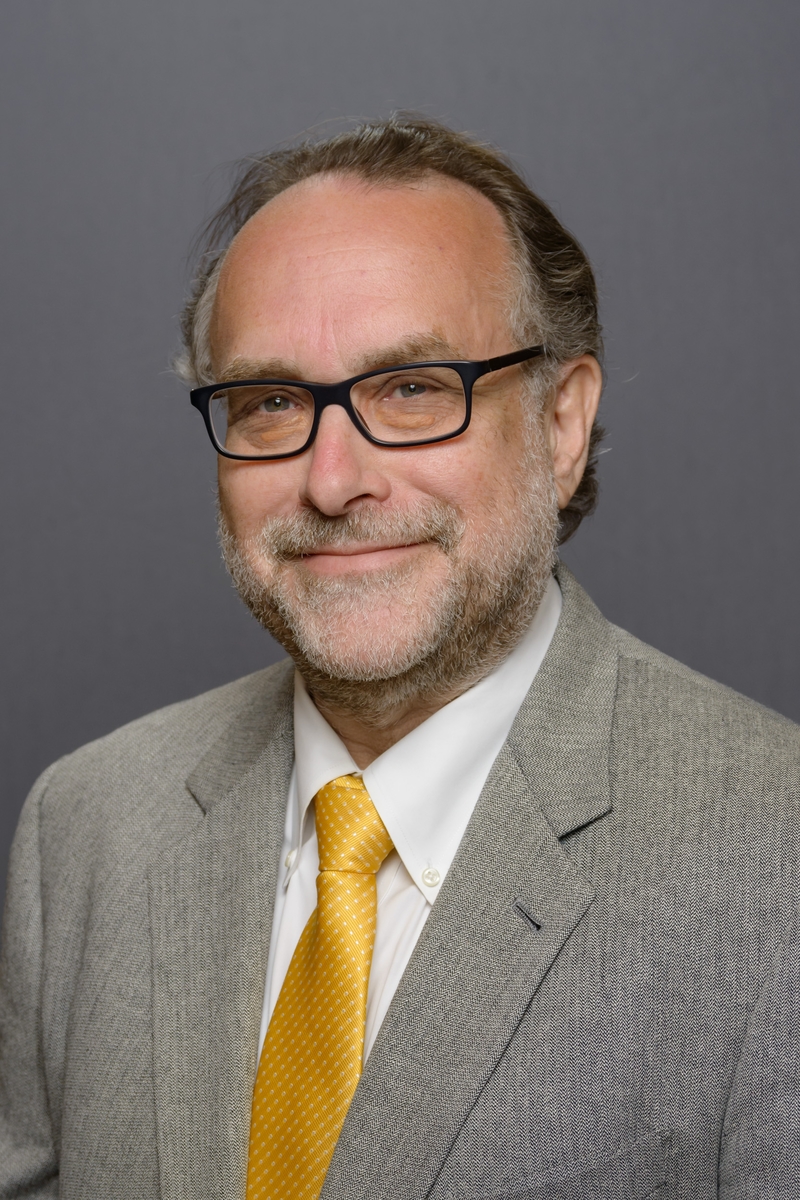
Ed Weisbart
Board Secretary, Physicians for a National Health Program
After practicing family medicine for 20 years at Rush Medical Center in Chicago, Ed Weisbart MD moved to St. Louis MO in 2003 to serve as chief medical officer of Express Scripts until retiring in 2010.
After practicing family medicine for 20 years at Rush Medical Center in Chicago, Ed Weisbart MD moved to St. Louis MO in 2003 to serve as chief medical officer of Express Scripts until retiring in 2010. He volunteered as an assistant professor of clinical medicine at Washington University in St. Louis from 2004 until retiring clinically in 2021.
He volunteers as the board secretary of Physicians for a National Health Program.
Dr. Weisbart received his medical degree at the University of Illinois in Chicago in 1979 and completed his family medicine residency and a fellowship in family medicine education at Michigan State University in 1982.
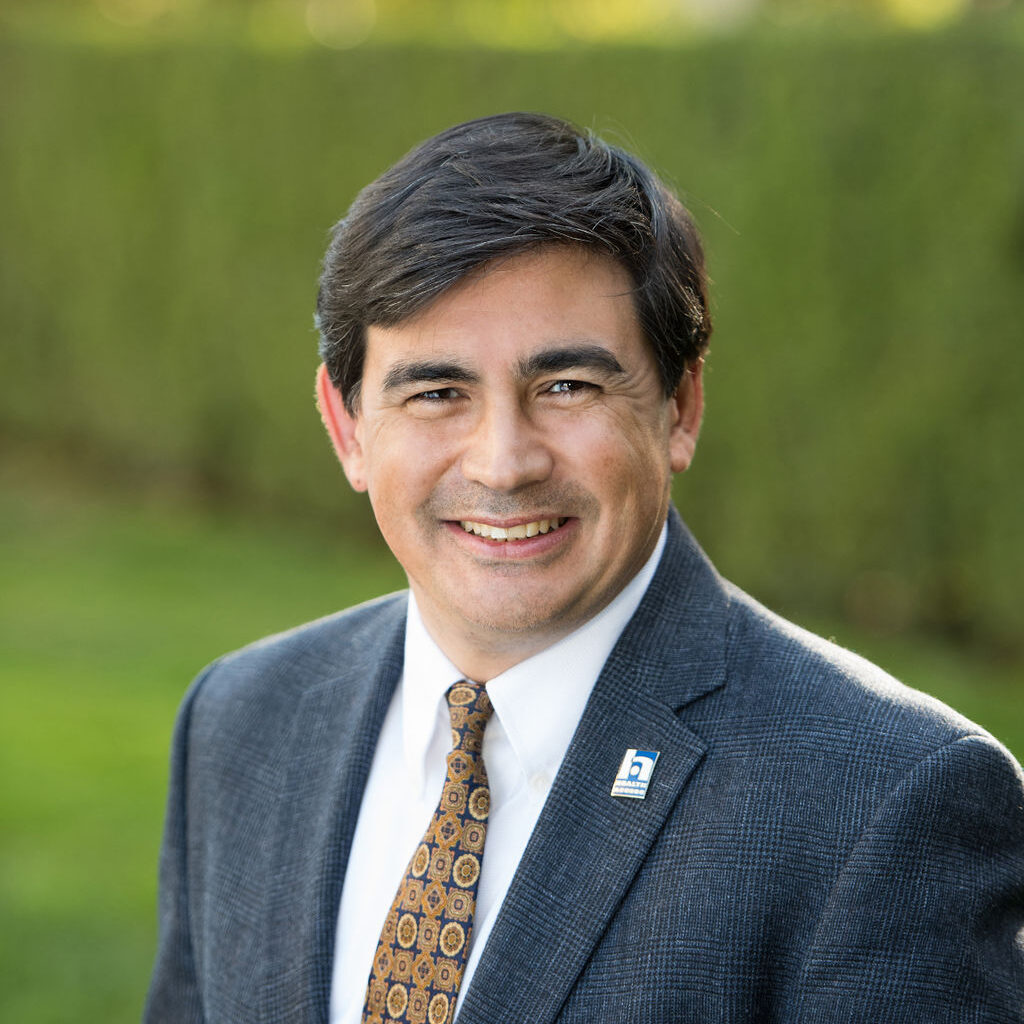
Anthony Wright
Executive Director, Families USA
Anthony E. Wright (He, Him) is Families USA’s Executive Director.
Anthony E. Wright (He, Him) is Families USA’s Executive Director. Before joining the organization, he served 22 years as Executive Director of Health Access California, the statewide health care consumer advocacy coalition. Under Wright’s leadership, Health Access California led state efforts to win patient protections, fight budget cuts, invest in the safety net, expand coverage, and advance equity and prevention.
He led California’s coalition effort to help pass and later defend the Affordable Care Act, and for state policies to implement and improve the law to attain the biggest drop of the uninsured rate in the nation. He was responsible for numerous successful health care advocacy efforts to pass critical health reforms—such as nation-leading laws to stop surprise medical bills, ensure timely access to care, stop hospitals overcharging, and expand Medicaid regardless of age, assets, or immigration status.
A consumer advocate and community organizer quoted widely in state and national media, Wright’s background also includes working for New Jersey Citizen Action, the Center for Media Education, The Nation magazine, and at the White House in Vice President Al Gore’s office. Raised in the Bronx, he graduated from Amherst College magna cum laude in both English and Sociology.
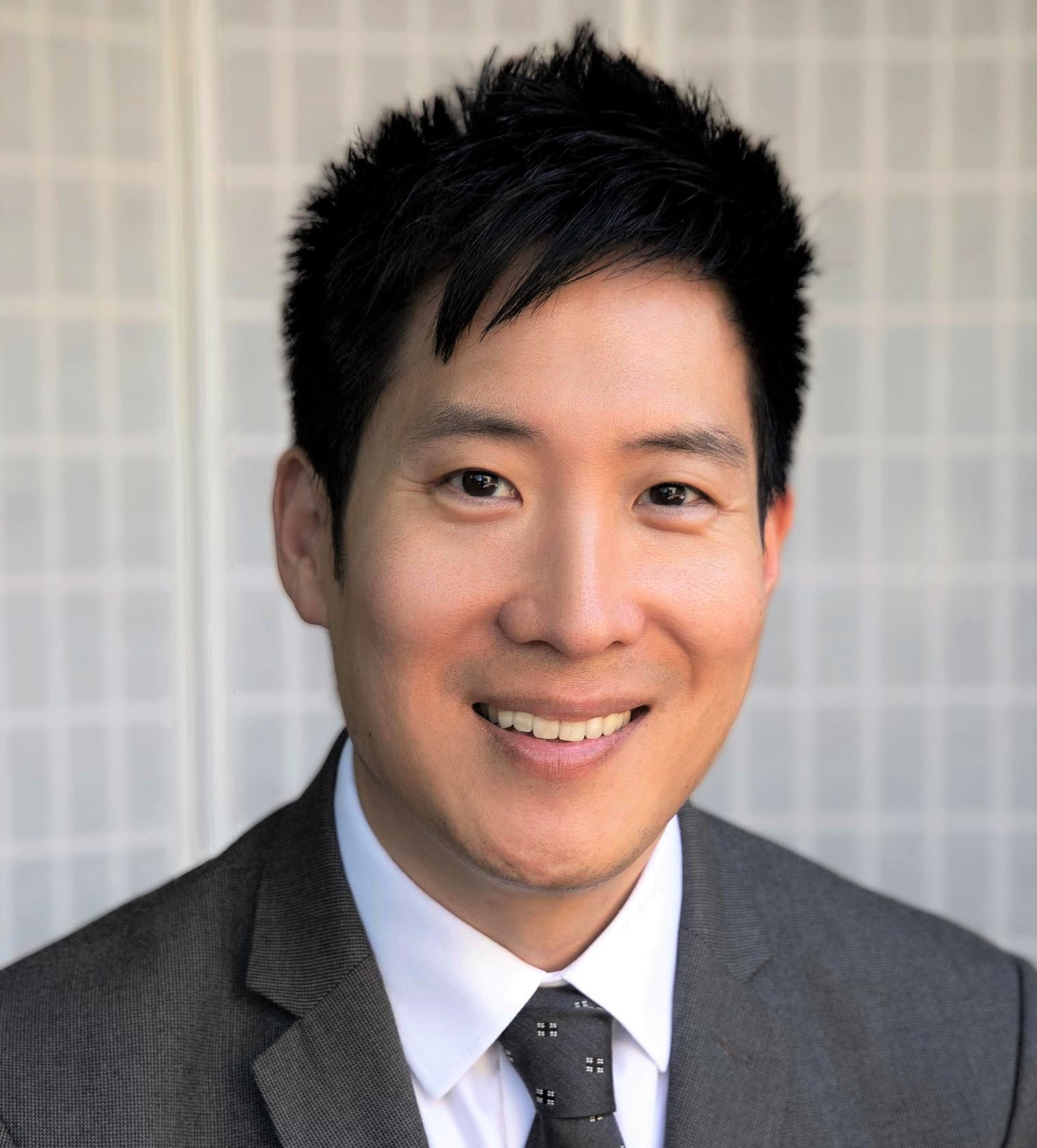
Wes Yin
Professor of Economics, University of California, Los Angeles
Wesley Yin is a Professor of economics at the UCLA Luskin School of Public Affairs, and the Anderson School of Management. He is also a Research Associate at the National Bureau of Economic Research, and a Faculty Affiliate at the Jameel Poverty Action Lab at MIT.
Wesley Yin is a Professor of economics at the UCLA Luskin School of Public Affairs, and the Anderson School of Management. He is also a Research Associate at the National Bureau of Economic Research, and a Faculty Affiliate at the Jameel Poverty Action Lab at MIT.
Yin’s research focuses on health care, consumer finance, and economic inequality. His recent work studies competition and market power in health care, and the links between health care financing and consumer financial health and well-being.
His work has been published in leading economics and policy outlets such as the Quarterly Journal of Economics, the American Economic Review, the Review of Economics and Statistics, JAMA, Health Affairs, and the Hamilton Project at the Brookings Institution, and has been covered by the New York Times, Washington Post, New Yorker, Forbes, The Guardian, Bloomberg, The Atlantic, Vox, and others.
Yin has also served as an economic adviser in two presidential administrations, most recently as the Chief Economist of the White House Office of Management and Budget. In the Obama Administration, Yin served as Acting Chief Economist and Deputy Assistant Secretary for Microeconomic Policy at the U.S. Department of the Treasury, and in the Council of Economic Advisers.
Previously, he was an assistant professor at the University of Chicago and Boston University, and a Robert Wood Johnson Scholar in Health Policy at Harvard University. He received his PhD in economics from Princeton University.
